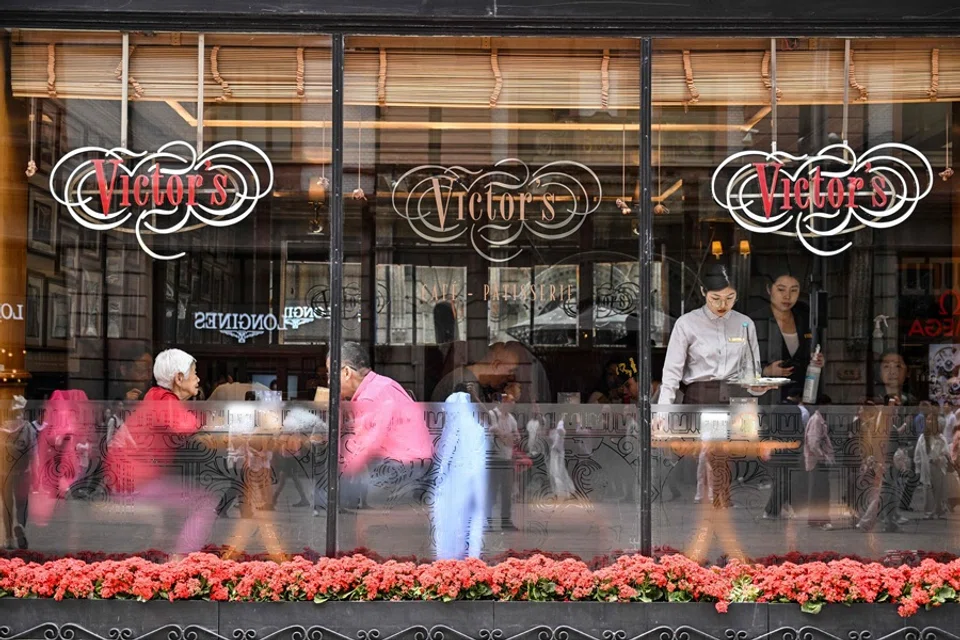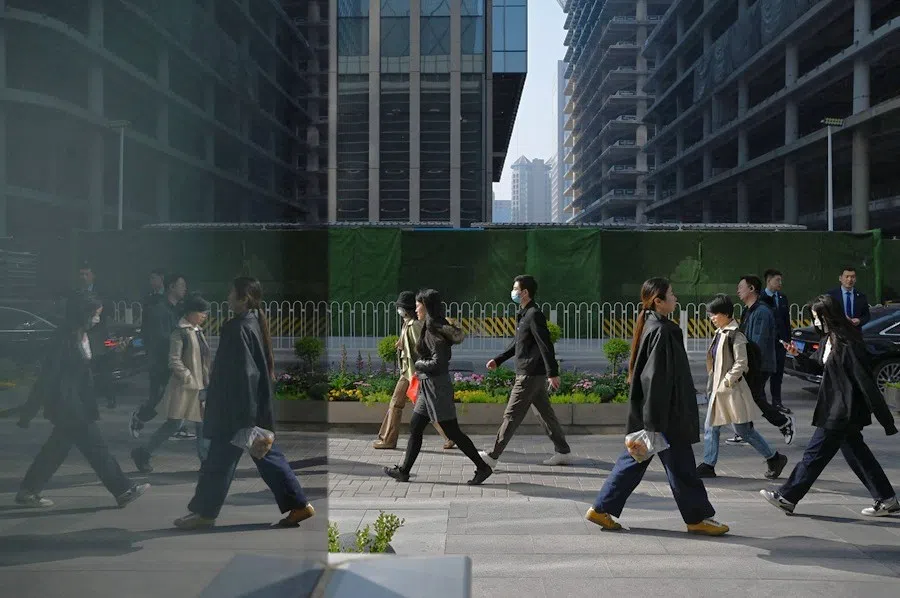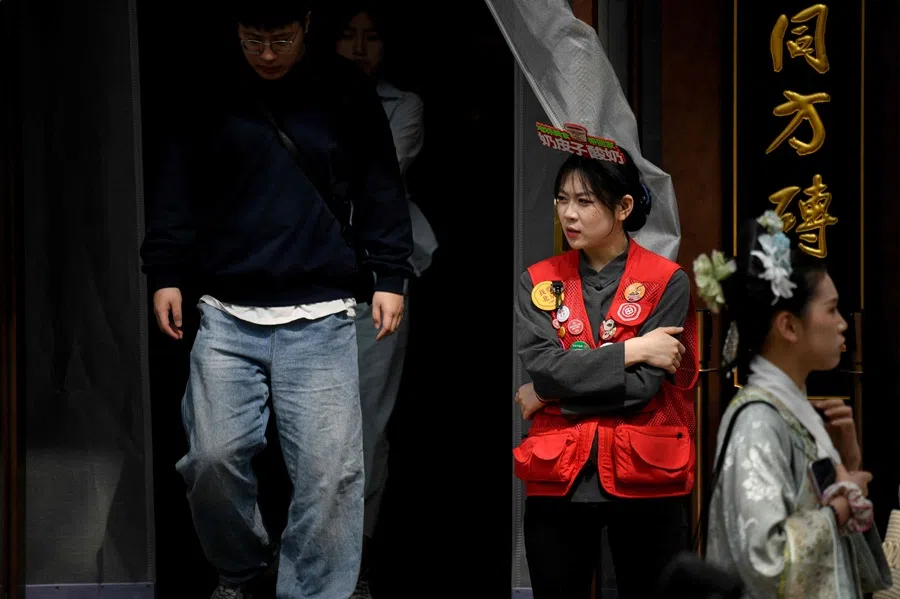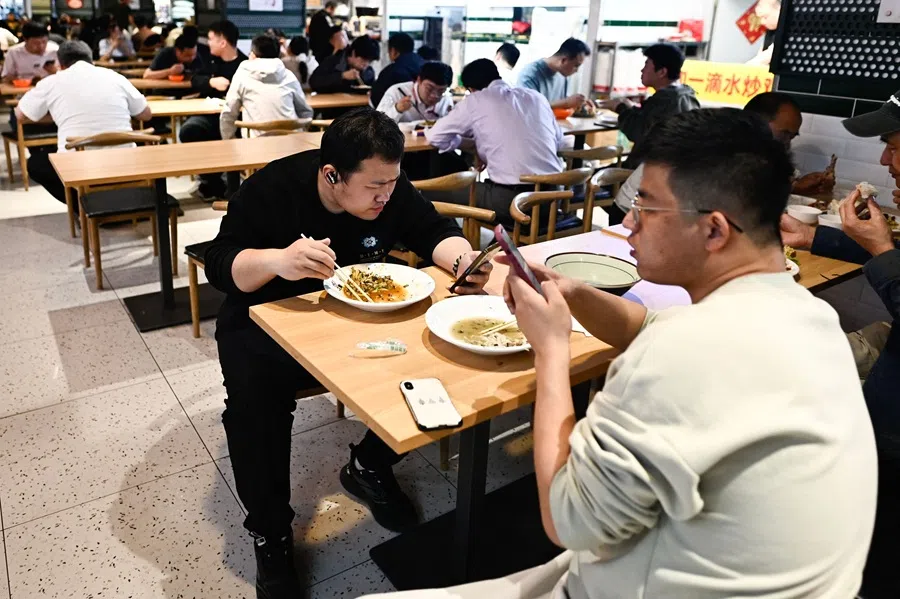Forbidden banquet: China’s crackdown on official dining
To rectify civil servants’ extravagant dining habits, the Chinese government has implemented a series of strict regulations and guidelines for dining out. However, these regulations have caused much anxiety and confusion in the public sector, says Lianhe Zaobao China news editor Yang Danxu.

Back in his hometown after working abroad, a Chinese friend proposed a get-together with old classmates. But as soon as he mentioned it in the group chat, a classmate working in the public sector nervously cautioned, “Eating out is out of the question. They’re cracking down on improper dining.”
Someone suggested cooking at home instead, but another classmate, also in the public sector, quipped, “Wouldn’t that count as hosting at a ‘private venue’?”
In some areas, rules have tightened further — public officials face a 24-hour alcohol ban, and work meals must be kept to no more than three people, leaving many both frustrated and amused.
No more banquets, alcohol or cigarettes
Last month, China updated its regulations on promoting frugality and opposing extravagance, banning gourmet dishes, cigarettes or alcohol at official meals. The issuance coincided with a major campaign to reinforce the “eight-point rules”, with authorities also highlighting several cases of cadre deaths linked to excessive drinking at banquets. Together, the regulations and campaign send a stark warning about “gourmet graft”.
Over the past month, local authorities across China have issued strict directives to crack down on improper dining. Suddenly, meals and gatherings became things that sent shivers down the spine of public sector employees. In some areas, rules have tightened further — public officials face a 24-hour alcohol ban, and work meals must be kept to no more than three people, leaving many both frustrated and amused.

Recently, an internal notice from a rural commercial bank in Guoyang, Anhui, was circulated online: two client managers were each fined 3,000 RMB (roughly US$418) and asked to write a self-reflection report after having lunch at a noodle shop paid for by a client. Their direct supervisor and branch manager were also slapped with a 1,000 RMB fine.
The strongly worded notice stated: “This violation occurred during a critical period of intensive study and education for the entire bank. Despite repeated orders prohibiting the acceptance of client banquets, some employees — especially those in key positions — showed disregard for the rules, blurred boundaries between work and personal life, and possessed weak rule awareness, causing serious negative repercussions.”
It was reported that the two client managers were treated to gankou noodles (干扣面), a traditional local dish in Guoyang, costing just 6 RMB a bowl. They likely never imagined that such a modest meal could be labelled a “banquet” and that accepting the meal would trigger such serious consequences.
Overzealous self-protection must be done: you must reject any casual “I’ll pay this time, you next time” arrangement — any meal could be a liability. If anyone brings up work during a meal, the topic must be shut down immediately.
Navigating the dining minefield
So how can one avoid these pitfalls? Social media is now filled with guides like: “A Must-Read for Public Servants: Dining Do’s and Don’ts Outside Working Hours”, “Could One Meal Ruin Your Career? Survival Tips for Government Employees”, and “Off-Limits Gatherings That Could End Your Career”.
There are quite a few things to take note of when going through these “manuals”. Some suggest asking yourself three soul-searching questions before lifting your chopsticks: who are you eating with? Who’s paying? Where is it happening? Overzealous self-protection must be done: you must reject any casual “I’ll pay this time, you next time” arrangement — any meal could be a liability. If anyone brings up work during a meal, the topic must be shut down immediately. Even friends of 20 or 30 years become off-limits if they are now suppliers, regulators, or bidders. If you are going Dutch, keep the receipt and digital payment record for at least three months, just in case you are reported.

However, uneasiness persists, and people’s concerns keep piling up: “Is dining with someone from my hometown considered forming a clique?”; “If I’m on a blind date with someone from a higher-level authority, should we split the bill?”; “I’m travelling with colleagues over the holiday — how should we handle meals?”; “All of my flatmates work in the public sector — can I still invite my college roommates to my wedding?” Some even suggested, “Just quit the system — it’s called solving the root of the problem.”
Is the crackdown impacting domestic consumption?
The hardline, one-size-fits-all crackdown on civil servants’ dining habits has sparked debate over overcorrection. The restaurant industry is on edge, fearing a repeat of the harsh winter experienced during the early anti-corruption drive. This time, however, even affordable eateries are not spared. While anti-corruption efforts should not be relaxed for the sake of the economy, China is currently striving to boost consumption. If even casual meals among friends cause anxiety, how can spending be revived?
State media recently warned against turning the “ban on improper dining” into “prohibiting normal meals”, which would instead snuff out the vibrancy of the restaurant scene. Scrutinising every gathering and intervening in every banquet may seem proactive, but such actions are actually lazy governance in disguise.
Amid growing controversy, the Central Commission for Discipline Inspection recently used two recent cases of improper dining among officials to clarify what constitutes a violation, the gatherings that must be avoided, and which warrant caution. Party secretaries of Inner Mongolia and Xinjiang have also publicly warned against overcorrection that could stifle normal social interaction and dim the vitality of everyday life.
The challenges of governance
“Gourmet graft” has long plagued China’s bureaucracy. Despite years of the “eight-point rules”, improper dining persists in a country where drinking and clique cultures run deep — often, beneath the clinking of glasses lies the exchange of power and interests. Behind this crackdown are good intentions: curbing lax conduct before it leads to corruption, preventing cliques and factionalism, and fostering healthier social relations.
This controversy over civil servants’ dining practices reflects a familiar “pendulum dilemma” — swinging from one extreme to another. When regulations are loosened, chaos ensues; when regulations are tightened, paralysis occurs.

Some among the public have noted that the ban reduces social obligations, boosts efficiency and provides peace of mind. Some officials concurred, saying, “Now we can go home after work — no more drinking with superiors, no more forcing young people to drink. Isn’t this good?”
This controversy over civil servants’ dining practices reflects a familiar “pendulum dilemma” — swinging from one extreme to another. When regulations are loosened, chaos ensues; when regulations are tightened, paralysis occurs. Crackdowns often happen during periods of intense scrutiny, only to fade with time when things return to normal. In essence, addressing the issue of improper dining is not only a challenge in rectifying conduct and enforcing discipline, but also a longstanding challenge in governing China’s complex landscape.
This article was first published in Lianhe Zaobao as “聚餐的难题”.




![[Big read] When the Arctic opens, what happens to Singapore?](https://cassette.sphdigital.com.sg/image/thinkchina/da65edebca34645c711c55e83e9877109b3c53847ebb1305573974651df1d13a)
